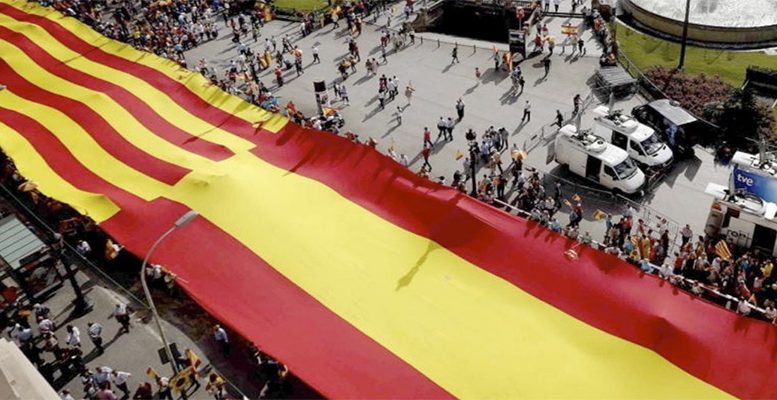Unless the polls are dramatically wrong, Pedro Sanchez´ socialist party (PSOE) will be by far the largest party after the Spanish general election on 28 April. Given that, there are three key questions for foreign observers: will the right wing bloc of the Partido Popular (PP), Ciudadanos and Vox secure an absolute majority of seats in the parliament? Will the combined vote of PSOE, the left wing Podemos and the Basque nationalists be sufficient to form a government without the support, active or passive, of the Catalan nationalists? How well will the far-right Vox do?
Again assuming that the polls are not helplessly wrong, the first question appears to have been answered. All the polls consistently show the combined seats of the PP, Ciudadanos and Vox falling well short of the absolute majority of 176 seats they would need to form a government. The main reason is the collapse in support for the PP, which could be heading for the worst electoral result in its history. The falling support for the PP so far does not seem to be being compensated by a commensurate increase of support for either Ciudadanos or Vox. Unless there is some major shock before the elections (although negative unemployment data are due to be published just before the elections, these seem unlikely to be sufficient), the next government looks set to be led by PSOE.
All polls indicate a significant increase in support for PSOE, to some extent at the cost of Podemos, suggesting that Sánchez will lead a parliamentary group of 130-135 deputies. This contrasts with the previous 84 seats (and vindicates his decision to seize power from PP prime minister Rajoy in last year´s censure vote), but is still well short of an absolute majority. The key issue will be whether the results are sufficient to allow him to form a government only with the support of Podemos and the Basque nationalist PNV, or whether he will need to count on the abstention of even vote in favour of the Catalan nationalists. The latter would be complicated, not only because of the preconditions the Catalan nationalists would set (eg the liberation of their leaders currently be tried for their role in the “independence referendum” in Catalonia in 2017), but also because of the internal opposition it would generate among PSOE´s old guard.
If Sanchez is forced to negotiate with the Catalan nationalists, he will come under increasing pressure from within his party to seek an alternative government coalition with Ciudadanos. There is much common ground in the social and economic policies of PSOE and Ciudadanos. They have signed an agreed government programme in the past, although they could not secure sufficient parliamentary support at that point. Ciudadanos leader Albert Rivera has ruled out forming a government with PSOE, since amended to ruling out forming a government with Sánchez. But things can change. Rivera himself may come under internal party pressure if Ciudadanos´ results are disappointing. Forming a centralist government with PSOE would allow Ciudadanos to distance itself from the far right Vox.
Vox´ results are significant, both in terms of their potential role as kingmaker, and as evidence of whether Spain too is succumbing to the right wing populism which seems to be sweeping the rest of Europe. It will be difficult to be sure of their results until the elections themselves. Polls consistently give them between 9-10% of the vote, which would amount to some 20 seats in the parliament. But polls in last years regional elections in Andalucia underestimated their vote, and there are reasons for suspecting the same may happen in the general election. As noted above, the fall in votes for the PP does not seem to be compensated by increases in support for Ciudadanos or Vox. This may mean that PP voters will simply stay at home, or that they are reluctant to admit that they will vote for a far right party. In addition, Vox has focused issues like hunting and bull-fighting, which get traction in rural areas where the seats to voters ratios are higher. Vox may do better than expected.
According to polls, the number of undecided voters remains high. This may reflect reluctance by former PP voters to admit their switch to Vox. But it also seems to reflect a general uncertainty. This is unlikely to be sufficient to prevent Sánchez´ victory, but it could affect the margin and the post-election mathematics. In any event, a government is unlikely to be formed immediately after the elections. All parties will want to await the European, regional and municipal elections o in May before committing themselves to coalition agreements. Depending on the outcome, a new government may not be formed until just before the summer break. Meanwhile Sánchez will remain acting Prime Minister.





